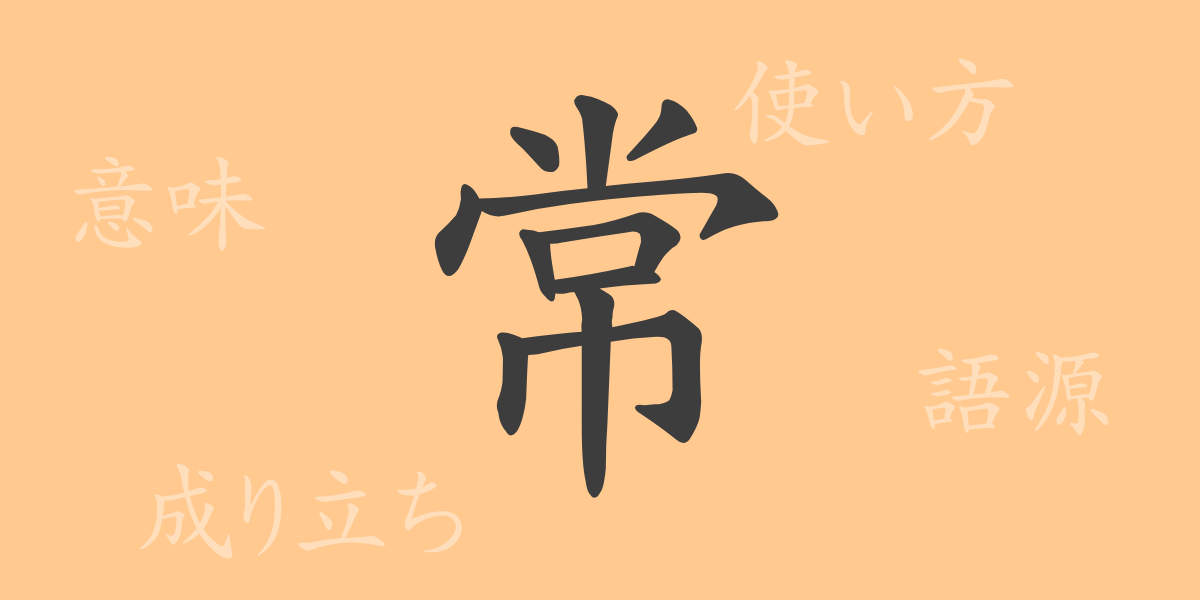The beauty of the Japanese language is evident in its nuanced expressions. Each character carries a depth of meaning, and their combination creates an enchanting linguistic tapestry. Today, we focus on the Japanese common kanji “常” (じょう), exploring its origins, meanings, usage, and extending to idioms and proverbs that enrich its narrative. Join us on a journey through the rich world embodied by this single character.
Origins of 常 (じょう)
The kanji “常” traces back to ancient China. Its original form combined “巛” (せん), representing a path, with “立”, depicting a standing person, symbolizing ‘a person standing on a path’. This evolved to mean ‘unchanging’ or ‘universal’. Over time, the character transformed into the modern “常”, retaining its fundamental meaning through the ages.
Meaning and Usage of 常 (じょう)
“常” carries meanings such as ‘always’ and ‘unchanging.’ It is also used to describe states or conditions that are established by law or rule. For instance, “常識” (じょうしき) refers to widely accepted knowledge or customs, while “常態” (じょうたい) denotes a normal state. As such, “常” is a kanji frequently used in everyday life, holding significant importance.
Readings, Stroke Count, and Radical of 常 (じょう)
It’s crucial to understand the readings and structure of “常”:
- Readings: On’yomi (音読み) “ジョウ”; Kun’yomi (訓読み) “つね”, “とこ”
- Stroke Count: “常” consists of 11 strokes.
- Radical: The radical of “常” is “巾” (はば).
Idioms, Phrases, and Proverbs Using 常 (じょう) and Their Meanings
Many idioms and phrases involving “常” reflect deep cultural and philosophical meanings. For example:
- “常識” (じょうしき): Commonly known knowledge or judgement.
- “非常識” (ひじょうしき): Lacking common sense or rational judgment.
- “常夏” (じょうか): Describes a climate warm like summer all year round.
- “常在戦場” (じょうざいせんじょう): Literally ‘ever-present battlefield’, meaning a place where conflict is constant.
- “泰山北斗の功” (たいざんほくとのこう): A phrase meaning ‘great achievements’, comparing them to the grandeur of Mount Tai and the Big Dipper.
Conclusion on 常 (じょう)
The kanji “常” plays a vital role in the Japanese language, deeply embedded in the thoughts and culture of its people and used in a multitude of expressions. This exploration aims to deepen our understanding of “常”, enriching our vocabulary and appreciation of Japanese linguistics.

























